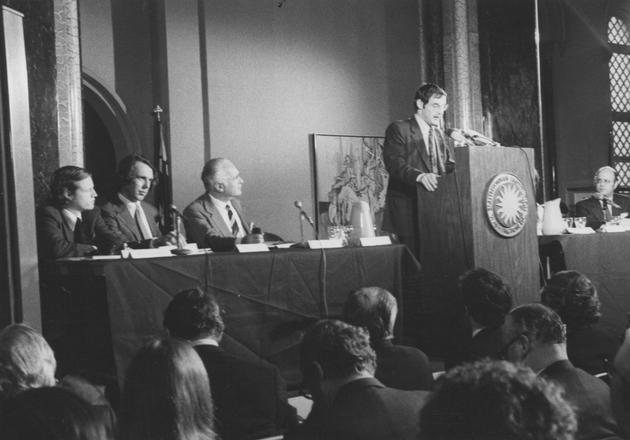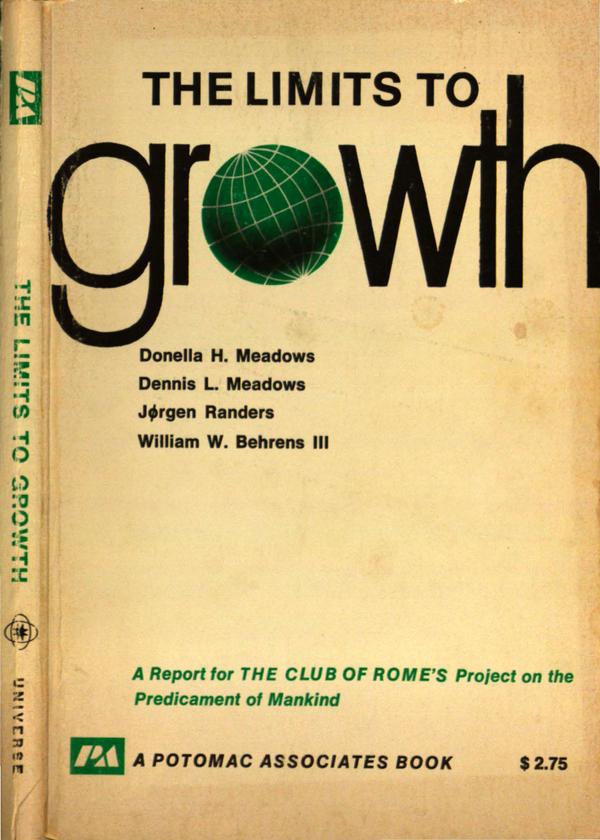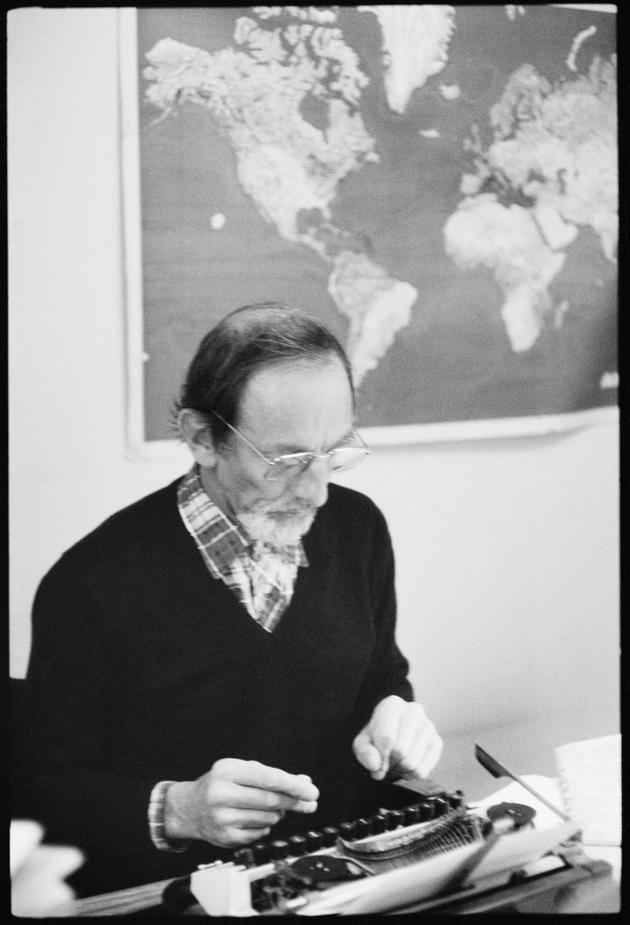

The long battle for climate coverage in Le Monde
Long ReadIt took the determination of a few pioneering reporters in the 1970s, alarming IPCC reports from 1990 onward, and young journalists' boldness for environmental issues to carve out a place among political and international topics in Le Monde's pages. With some mockery along the way.
At the opening of a major climate event, a senior diplomat promised that "the era of rhetorical conferences is over. Now, it's time for action." Outside, demonstrators criticized the "blah-blah-blah" of leaders who talk about the problem but don't do enough about it. The scene seems familiar. Yet it took place not at COP28 in 2023 but in Norway in 1990, at one of the world's first climate conferences in Bergen. The story was told by this newspaper's Scandinavia correspondent, Françoise Nieto. The Intergovernmental Panel on Climate Change (IPCC) was not yet well known, but Le Monde started to timidly examine it... on the second-to-last page.


It would be misleading to claim that Le Monde, established in December 1944, has always been at the forefront of environmental issues. When the first report on the limits of growth was published in 1972 – known as the Meadows Report – the newspaper gave it minimal, skeptical coverage. In a very short article – a few lines on page 18, entitled "The End of the World in 2100?" – Jean-Louis Lavallard noted that "this report is far from unanimous" and that "the methods used are criticized, as are the conclusions." Subsequent articles in the newspaper were almost unanimously concerned by the "doom-mongering" of the Club of Rome's "futurologists." These issues rarely made the front page. Focused on diplomatic and domestic political issues, Le Monde initially paid little attention to environmental issues, be they international concerns or local struggles.

One of the pioneers of this coverage was Marc Ambroise-Rendu, who joined the paper in 1974. A few days before his death in June, Ambroise-Rendu recalled the "immense freedom" granted to him by the editorial team. But he often found himself "a bit alone in his corner." He used to go out reporting on his motorcycle and often dictated his articles by telephone to stenographers. He remembered "being struck" by environmental issues at a time when France was still a country of massively expanding freeways and factories. In a series of articles published in 1983, he listed the threats leading to "the depletion of the biosphere" and called for "good stewardship of our globe" – topics that didn't feature much on the front page of the newspaper. He was followed in this approach by another journalist, Roger Cans, who would later testify to the difficulty of pushing these subjects on the editorial staff. Environmental issues, limited to the protection of nature, were at the time considered by part of the newspaper more as a curiosity than a serious subject. Cans, who died in 2018, recounted how his pitch for a series on organic farming was turned down in the 1980s, with the topic deemed marginal and without a future.
You have 89.1% of this article left to read. The rest is for subscribers only.
